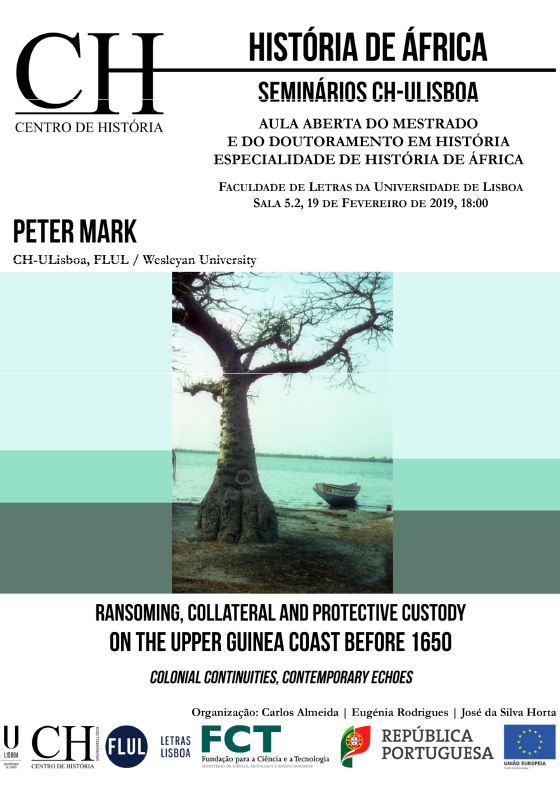Ransoming, Collateral and Protective Custody on the Upper Guinea Coast before 1650; Colonial Continuities, Contemporary Echoes | Seminários CH-ULisboa | História de África
Faculdade de Letras da Universidade de Lisboa, 19 de Fevereiro de 2019, Sala 5.2, às 18:00
Organização | Centro de História da Universidade de Lisboa
Descarregar cartaz

Peter Mark
CH-ULisboa, Faculdade de Letras da Universidade de Lisboa, Wesleyan University
Before 1600 African nobility were rarely enslaved. Remnants of this status persisted into 19th century Sierra Leone where grumetes, unfree laborers, were not sold into Atlantic slavery. At the same time, pawning, or the holding of human beings as security for debt to ensure the fulfillment of treaty obligations, was common practice. But why was this practice initially adapted when Europeans and West Africans first met and interacted, primarily through commerce? When the Portuguese arrived in West Africa, they were already familiar with systems of ransoming and with the associated practice of differential treatment for social elites. Once widely adopted, these practices remained active in Upper Guinea up to the eve of the 19th-century colonial partition.

